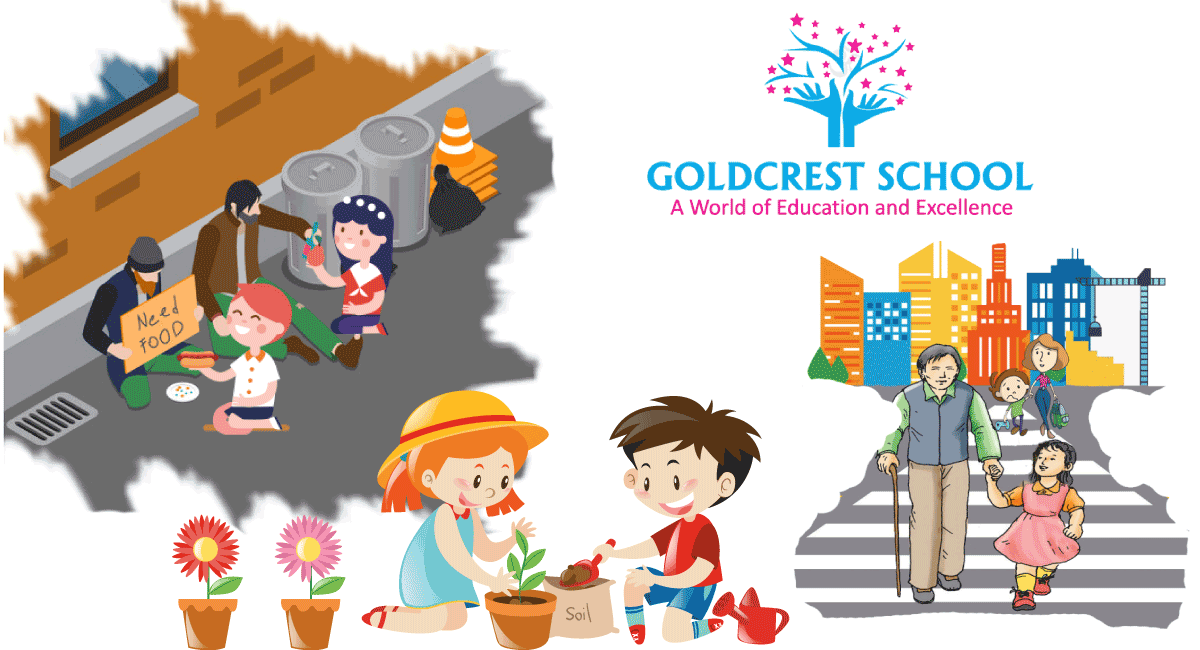![]()

Compassion is an ability that is learned over time and through a practice. Before going to discuss Compassion first we need to understand about empathy because it is coming one step before Compassion.
How is Empathy Different from Compassion ?
Empathy is one type of ability to understand others feelings and emotions. Compassion goes one step further – same as the empathy but it additionally includes “desired to help”. In simple words – if empathy is the ability to understand feelings and emotions then compassion is to translate those feelings into action.
How do Children Learn Compassion ?
Compassion involves being sensitive to the emotions of others, understanding those emotions and responding in an acceptable manner. Compassion seems comes too naturally, but children are generally poor at showing sensitivity to the other people. On the other hand, children may be very sensitive to the emotions of others but they cannot understand how to respond in that situation.Those difficulties will give a negative result in social experiences, leading to poor social confidence.
So how to develop this critical ability in children – do they need to learn this ability or it will automatically come when they are matured?
Parents need to raise compassion ability in their child by following these six strategies:
1) Let Them to Share Common Things:
Children generally understand the concept of sharing at the age of four, before that parents need to prepare to do it. Children need to learn the value of sharing and helping anyone so that they can make and keep friends, and play co-operatively. Teach children how to help needy and poor people by giving them food, blanket and etc.
2) Encourage Them to Help Others:
Most of the older people are unable to cross the road in time, if your child sees an old people having the difficulty crossing, inspire them to help those people. Encouraging your children to help out will help them to be a kinder person when they become adults.
3) Help Them to Become More Responsive:
If your children lost library books or cell phones or might be windows broken by their baseball then make sure your children to be responsible for paying damage rather than assuming someone else will simply ”buy another”.
4) Develop Caring Mindset:
Children need to learn how to care for others and to express gratitude for those who care for them. Whether it is helping a friend with homework, neighbor works, having a classroom job and try to develop children caring capacities. Hold the family meeting that gives chance to your children by helping to solve the family problem such as squabbles between two siblings.
5) Let Children Know Often That How They Treat Others Matters:
A child might think it’s funny to see someone gets splashed if the car has driven by and hits by puddle but the person feels sad and cloths also dirty. Children need to know how they treat that matters and what kind of help they do for that situation.
6) Acknowledge Kindness:
When someone does something nice, ensure to give acknowledgement to that person so that they will observe and apply in their life. For example, if some of children doing tree plantation in their colony, likewise if your children do something nice, be sure to acknowledge and praise their effort.
Like many things, Compassionate is just a quality that children learn over time and through practice. With the help of these strategies, you can do to encourage your child to become a kinder and caring person.
